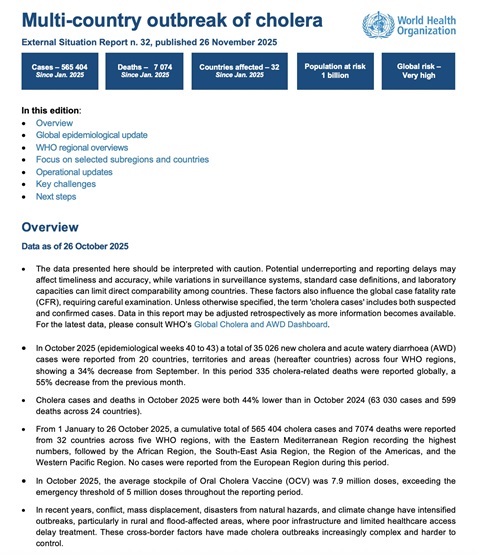AGI Calls for Bold Reforms to Unlock Industrial Growth – News Ghana

Report on the Association of Ghana Industries’ Call for Economic Reforms
The Association of Ghana Industries (AGI) has issued a formal call for urgent and deliberate policy reforms aimed at creating a conducive business environment. The objective is to enhance the global competitiveness of Ghana’s industrial sector, a critical step towards achieving several United Nations Sustainable Development Goals (SDGs). This report outlines the key challenges, proposed solutions, and their alignment with the 2030 Agenda for Sustainable Development, as presented at the AGI Annual General Meeting in Kumasi on September 28, 2025.
Alignment with Sustainable Development Goals (SDGs)
The AGI’s recommendations directly support Ghana’s progress towards key SDGs. The call for a robust industrial sector is intrinsically linked to sustainable economic growth, innovation, and decent work.
SDG 9: Industry, Innovation, and Infrastructure
- The proposed three-pillar strategy, focusing on policy, infrastructure, and finance, is a direct roadmap for achieving Target 9.2 (promote inclusive and sustainable industrialization).
- The demand for massive investment in reliable power, water, roads, and digital systems addresses Target 9.1 (develop quality, reliable, sustainable, and resilient infrastructure).
- Calls to end the export of raw materials without value addition support the goal of building resilient infrastructure and fostering sustainable industrialization.
- Advocacy for improved access to finance for Small and Medium Enterprises (SMEs) aligns with Target 9.3.
SDG 8: Decent Work and Economic Growth
- By seeking to remove hurdles for local industries, the AGI aims to stimulate productive activities and decent job creation, as outlined in Target 8.3.
- Addressing the shortage of skilled labour through investment in skills development is crucial for achieving higher levels of economic productivity (Target 8.2).
- Government initiatives like YouStart and the One District, One Factory programme, while acknowledged, require a more supportive environment to fully contribute to sustainable economic growth.
SDG 7: Affordable and Clean Energy
- The identification of unreliable power supply as a major hurdle underscores the importance of Target 7.1 (ensure universal access to affordable, reliable, and modern energy services) for industrial viability and competitiveness.
SDG 12: Responsible Consumption and Production
- The challenge issued to AGI members to adopt sustainable practices directly promotes the goals of responsible production patterns.
SDG 17: Partnerships for the Goals
- The AGM and Job Fair, conducted in partnership with the Mastercard Foundation and Ghana Export Promotion Authority, exemplifies the multi-stakeholder collaboration essential for achieving the SDGs.
- The call for deepened engagement between the government and industry stakeholders reinforces the principle of partnership.
Key Challenges Hindering Industrial Competitiveness
During the meeting, AGI Regional Chair Kwasi Nyamekye identified several structural impediments that constrain sectoral performance despite promising government initiatives. These challenges directly impact the nation’s ability to achieve its SDG targets.
- High Interest Rates: Crippling lending rates limit the capacity of local manufacturers, particularly SMEs, to invest and expand, hindering progress on SDG 8 and SDG 9.
- Unreliable Power Supply: Inconsistent energy access disrupts production schedules, increases operational costs, and undermines industrial efficiency, directly conflicting with SDG 7.
- Multiple Taxes: A complex and burdensome tax regime is cited as a significant barrier to business growth and competitiveness.
- Shortage of Skilled Labour: A deficit in skilled workers limits the industrial sector’s capacity for innovation and productivity, impacting SDG 8.
- Lack of Value Addition: The continued practice of exporting raw materials without processing represents a missed opportunity for job creation, economic diversification, and sustainable industrialization (SDG 9).
Proposed Strategic Framework for Industrial Growth
Mr. Nyamekye proposed a strategy anchored on three core pillars to unlock the country’s industrial potential and align its growth with sustainable development principles.
- Policy Stability: A predictable and stable regulatory environment is fundamental. The AGI advocates for sustained dialogue between government and industry stakeholders to ensure policies are practical and support long-term investment, fostering a climate conducive to achieving SDG 9.
- Infrastructure and Innovation: This pillar calls for significant public and private investment in foundational infrastructure (power, water, transport, digital). It also emphasizes promoting innovation ecosystems to transition Ghana from a low-cost production base to a hub for industrial creativity, a core tenet of SDG 9.
- Access to Finance: Financial institutions are urged to develop tailored products for industrial enterprises. This includes affordable lending rates and longer repayment periods for SMEs, which is critical for fostering inclusive industrial growth as per Target 9.3.
Conclusion and Call to Action
The AGI reaffirms its commitment to collaborating with government and international partners to drive industrial growth that is both competitive and sustainable. The theme of the event, “Creating a Conducive Business Environment for Industrial Competitiveness: 24 Hours in Perspective,” reflects a broader discussion on maximizing productive capacity through fundamental reforms.
A challenge was issued to all AGI members to actively contribute to the national development agenda by:
- Adopting sustainable practices (SDG 12)
- Embracing technology and innovation (SDG 9)
- Investing in skills development (SDG 8)
The AGI posits that building a robust industrial sector is a deliberate decision requiring concerted action and accountability from all stakeholders to secure a prosperous and sustainable future for Ghana.
Sustainable Development Goals (SDGs) Addressed
SDG 7: Affordable and Clean Energy
- The article highlights “unreliable power supply” as a significant challenge for local industries in Ghana. The call for “massive investment in reliable infrastructure, including power” directly connects to the goal of ensuring access to reliable energy, which is crucial for industrial operations and economic growth.
SDG 8: Decent Work and Economic Growth
- The core theme of the article is creating a “conducive business environment” to make industries competitive, which is fundamental to economic growth. It mentions specific issues like the “shortage of skilled labour,” the need to “invest in skills development,” and the organization of a “Job Fair,” all of which relate to creating decent work. The focus on supporting Small and Medium Enterprises (SMEs) through better access to finance also aligns with this goal.
SDG 9: Industry, Innovation, and Infrastructure
- This is the most central SDG in the article. The discussion revolves around Ghana’s “industrial sector,” “industrial growth,” and “industrialisation.” The text explicitly calls for investments in infrastructure (power, water, roads, ports, digital systems), promoting “innovation ecosystems,” embracing “technology,” and adding value to raw materials instead of exporting them. These are all core components of SDG 9.
SDG 17: Partnerships for the Goals
- The article emphasizes the need for collaboration. It mentions the AGI’s call for the government to “deepen engagement with AGI and other stakeholders.” It also highlights AGI’s commitment to “working with government and international stakeholders” and notes that the event was held in partnership with the “Mastercard Foundation and Ghana Export Promotion Authority,” demonstrating the importance of multi-stakeholder partnerships to achieve industrial development goals.
Specific SDG Targets Identified
SDG 7: Affordable and Clean Energy
- Target 7.1: By 2030, ensure universal access to affordable, reliable and modern energy services. The article’s complaint about “unreliable power supply” crippling industries directly points to the need to achieve this target for the industrial sector.
SDG 8: Decent Work and Economic Growth
- Target 8.2: Achieve higher levels of economic productivity through diversification, technological upgrading and innovation, including through a focus on high-value added and labour-intensive sectors. The lament that Ghana is “still exporting raw materials without value addition” is a direct call to action for this target.
- Target 8.3: Promote development-oriented policies that support productive activities, decent job creation, entrepreneurship, creativity and innovation, and encourage the formalization and growth of micro-, small- and medium-sized enterprises, including through access to financial services. The call to address “high interest rates” and for financial institutions to design “tailored products for industry players, especially small and medium enterprises” aligns perfectly with this target.
SDG 9: Industry, Innovation, and Infrastructure
- Target 9.1: Develop quality, reliable, sustainable and resilient infrastructure, including regional and transborder infrastructure, to support economic development and human well-being. The call for “massive investment in reliable infrastructure, including power, water, roads, ports, and digital systems” is a direct reference to this target.
- Target 9.2: Promote inclusive and sustainable industrialization. The article’s entire focus on boosting the “industrial sector,” increasing “local production,” and adding value to raw materials aims to raise industry’s contribution to the economy.
- Target 9.3: Increase the access of small-scale industrial and other enterprises… to financial services, including affordable credit. The concern over “high lending rates that continue to cripple local manufacturers” and the plea for affordable finance for SMEs directly addresses this target.
- Target 9.4: Upgrade infrastructure and retrofit industries to make them sustainable. The challenge for AGI members to “adopt sustainable practices” and “embrace technology” relates to making industries more efficient and sustainable.
- Target 9.5: Enhance scientific research, upgrade the technological capabilities of industrial sectors… encouraging innovation. The proposal to promote “innovation ecosystems” so Ghana can become a “hub for industrial creativity” is a clear link to this target.
SDG 17: Partnerships for the Goals
- Target 17.14: Enhance policy coherence for sustainable development. The call for “policy stability” and ensuring that “regulatory changes will not happen overnight” speaks to the need for coherent and predictable policies.
- Target 17.17: Encourage and promote effective public, public-private and civil society partnerships. The article highlights the need for the government to engage with AGI and other stakeholders, and the event itself was a partnership between AGI, Mastercard Foundation, and the Ghana Export Promotion Authority.
Implied Indicators for Measurement
Indicators for SDG 7, 8, 9, and 17
- Reliability of Power Supply: The article’s mention of “unreliable power supply” implies an indicator such as the frequency and duration of power outages experienced by industrial firms. This would measure progress towards Target 7.1.
- Manufacturing Value Added: The concern about “exporting raw materials without value addition” implies an indicator like ‘Manufacturing value added as a proportion of GDP’. An increase would show progress towards Target 8.2 and 9.2.
- Cost of and Access to Finance: The article explicitly mentions “high interest rates” and “high lending rates.” This points to indicators such as ‘Interest rate spread’ or ‘Lending interest rates for businesses’. The call for tailored products for SMEs implies an indicator like the ‘Proportion of small-scale industries with a loan or line of credit’ to measure progress on Target 8.3 and 9.3.
- Quality of Infrastructure: The call for investment in “power, water, roads, ports, and digital systems” suggests that the quality and availability of this infrastructure could be used as an indicator to measure progress towards Target 9.1.
- Investment in Skills Development: The mention of a “shortage of skilled labour” and the call to “invest in skills development” implies an indicator related to the proportion of the workforce with relevant technical and vocational skills or corporate investment in employee training.
- Policy Stability: The demand for “policy stability” suggests an indicator could be derived from business confidence surveys that measure perceptions of regulatory predictability, tracking progress towards Target 17.14.
Summary Table of SDGs, Targets, and Indicators
| SDGs | Targets | Indicators (Implied from Article) |
|---|---|---|
| SDG 7: Affordable and Clean Energy | 7.1: Ensure universal access to affordable, reliable and modern energy services. | Frequency and duration of power outages affecting industries. |
| SDG 8: Decent Work and Economic Growth | 8.2: Achieve higher levels of economic productivity through diversification and value addition.
8.3: Promote policies to support SMEs, including access to financial services. |
Manufacturing value added as a proportion of GDP.
Lending interest rates for businesses; Proportion of SMEs with access to credit. |
| SDG 9: Industry, Innovation and Infrastructure | 9.1: Develop quality, reliable, sustainable and resilient infrastructure.
9.2: Promote inclusive and sustainable industrialization. 9.3: Increase access of small-scale industries to financial services. 9.4: Upgrade industries to make them sustainable. 9.5: Enhance research and upgrade technological capabilities. |
Investment in and quality of infrastructure (power, roads, ports, digital).
Share of manufacturing in total employment and GDP. Affordability and availability of credit for industrial enterprises. Adoption rate of sustainable practices and new technologies by firms. Investment in innovation ecosystems. |
| SDG 17: Partnerships for the Goals | 17.14: Enhance policy coherence for sustainable development.
17.17: Encourage effective public, public-private and civil society partnerships. |
Business confidence indices measuring regulatory predictability.
Number and effectiveness of multi-stakeholder partnerships for industrial development. |
Source: newsghana.com.gh

What is Your Reaction?
 Like
0
Like
0
 Dislike
0
Dislike
0
 Love
0
Love
0
 Funny
0
Funny
0
 Angry
0
Angry
0
 Sad
0
Sad
0
 Wow
0
Wow
0















































































